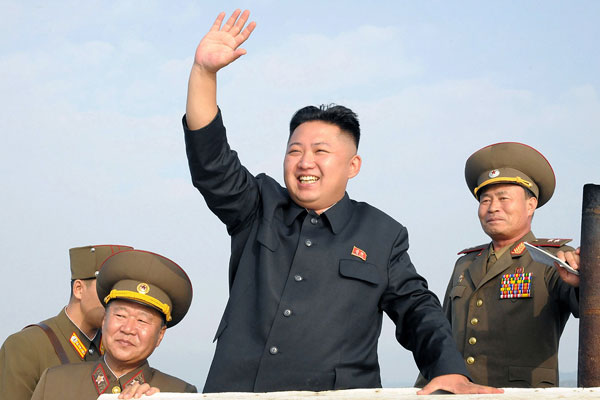North Korean leader Kim Jong-un continues to dazzle the world.
The New Year dawned with Kim Jong-un giving a New Year’s Day policy speech rather than issuing a written editorial like his reclusive father Kim Jong-il. The media are now awash with articles predicting that Kim fils has turned over a new leaf and is willing to bury the hatchet with South Korea.
Naively optimistic interpretations of North Korean statements have a long track record in Washington. But there is a danger in the media’s misinterpretation of Pyongyang’s supposed messages, since it creates false perceptions of dramatic policy reversals. This, in turn, can generate pressure on Washington and the new Park Geun-hye administration in Seoul to respond to these “signals” by offering new concessions to induce Pyongyang back to the negotiating table. China will also use perceptions of a more moderate North Korea to undermine U.S. efforts for the U.N. to punish North Korea for its December 2012 rocket launch.
In early 2012, Kim Jong-un’s sponsorship of a show with Disney characters cavorting on stage led many experts to again predict that North Korea was on the cusp of implementing massive economic reforms. Yet 2012 ended without any of the expected capitalist changes or any moderation in North Korea’s foreign policy. Instead, Pyongyang flaunted its defiance of U.N. resolutions by twice launching long-range rockets.
Each year, North Korea’s New Year’s message is scoured for clues like the mumblings of a Delphic oracle. Passages that are less vituperative than the preceding year are interpreted as Pyongyang signaling its desire for peaceful engagement. Inevitably, however, North Korea’s subsequent actions belie the rosy predictions.
In 2009, North Korean New Year remarks about the United States were less critical, leading to anticipations of an impending breakthrough with the incoming Obama Administration. Instead, Pyongyang unleashed a series of provocations, including missile and nuclear tests, abandoned the Korean War armistice, and threatened war against Washington and its allies.
Similarly, the 2010 message was more muted in its depiction of South Korea. Surely this portended a thaw in inter-Korean relations. Instead, Pyongyang twice attacked South Korea, killing 50 by sinking a naval vessel in South Korean waters and shelling a civilian island.
Select phrases from Kim Jong-un’s 2013 speech, such as “compatriots in the South,” have been interpreted as harbingers of change in the Hermit Kingdom. Yet a closer reading of the text shows a North Korean emphasis on continuing rather than changing policy. There is not even a hint of economic reform. Instead, the text is replete with Soviet-style exhortations of “striving to build a socialist country” and fulfilling production quotas “fixed in the national economic plan.”
The emphasis, as in previous years, is on the need to maintain North Korea’s songun (military first) and chuche (self-reliance) policies against foreign threats while following the “unfurled banner of Kimilsungism and Kimjongilism.” Hardly a recipe for the rumored profit-driven, free-market principles that were anticipated last year.
Predictably, North Korea’s call to “end the division of the country” and “remove confrontation between the north and the south” are held aloft as evidence of a less belligerent policy. But context is critical in interpreting North Korean rhetoric. Pyongyang blames, as it did in previous years, “anti-reunification forces of South Korea” and “outside forces” for tension on the peninsula. North Korea conveniently neglects to mention its acts of war, advocacy for the assassination of the South Korean president, and repeated violations of agreements, international law, and U.N. resolutions.
One thing is certain, however: During the coming lunar Year of the Snake, North Korea will continue to play the serpent, tempting the U.S. and South Korea with the forbidden fruit of its nuclear weapons.




























